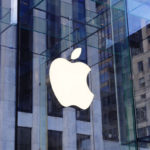German carmaker Volkswagen AG is investigating recently manufactured vehicles fitted with Takata Corp. side air bags after one of the safety devices ruptured in June in a 2015 model Tiguan SUV.
US safety regulators said on Monday they have directed the US units of Volkswagen and Takata to provide information on an incident that occurred on June 7th when a driver struck a deer in Missouri and the air bag ruptured, but no injuries were reported. The cause of the rupture is not known, the National Highway Traffic Safety Administration (NHTSA) said, adding that it has no information to draw any connection between the incident in question and the numerous Takata-related recalls that have affected other carmakers.
Both companies said they were investigating the rupture and were cooperating with the NHTSA. “We believe it is unrelated to the previous recalls, which the extensive data suggests were a result of aging and long-term exposure to heat and high humidity” said Jared Levy, a Takata spokesman.
If the probe leads to a recall, Volkswagen would be the 12th auto maker to have pulled back vehicles with flawed Takata air bags. This would add to the already withdrawn 32 million vehicles with defective inflators in front Takata air bags that have been tied to eight deaths, all in Honda cars, and more than 130 injuries.
The German auto maker said it is not aware of any other similar ruptures in vehicles equipped with Takata-made air bags. The defective air bags that led to the massive recalls by other car makers were reported to be dangerous because they can explode with too much force, sending shrapnel flying towards the driver and passengers upon their deployment.
According to industry analysts, ammonium nitrate, used by Takata as a propellant, is more volatile than other materials utilized in the industry and can become very combustible after prolonged exposure to moisture. The NHTSA has required from Volkswagen a list of all models fitted with air bags with ammonium nitrate and has ordered Takata to identify all air bags using the chemical compound in question as propellant.
This comes after Volkswagen last week announced it is recalling 420 000 cars in the US and about 41 000 in Canada to fix a flaw that could prevent air bags from deploying in an accident. The pullback, not tied to the Takata recalls, included the Golf, Jetta, Passat and Tiguan models made between 2010 and 2014, the auto maker said on Friday, adding that it is not aware of any injuries related to the problem.
Debris may interfere, under certain circumstances, with the clock spring that keeps the air bags powered, cutting the electrical connection to the drivers front air bag, according to the NHTSA. Volkswagen said it is addressing the issue and is reviewing whether vehicles delivered to other markets are affected as well.
Volkswagen AG traded 0.59% lower at €176.90 per share at 09:30 GMT in Frankfurt, marking a year-on-year increase of 5.86%. The carmaker is valued at €84.69 billion. According to the Financial Times, the 28 analysts offering 12-month price targets for Volkswagen AG have a median target of €242.50, with a high estimate of €300.00 and a low estimate of €170.00. The median estimate represents a 36.27% increase from the previous close of €177.95.





